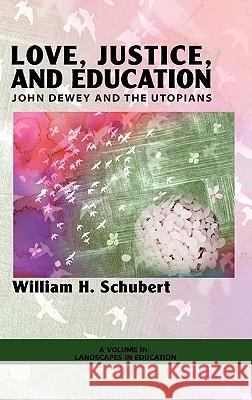Love, Justice, and Education: John Dewey and the Utopians (Hc) » książka
Love, Justice, and Education: John Dewey and the Utopians (Hc)
ISBN-13: 9781607522393 / Angielski / Twarda / 2009 / 284 str.
Love, Justice, and Education: John Dewey and the Utopians (Hc)
ISBN-13: 9781607522393 / Angielski / Twarda / 2009 / 284 str.
(netto: 387,20 VAT: 5%)
Najniższa cena z 30 dni: 406,56
ok. 30 dni roboczych
Dostawa w 2026 r.
Darmowa dostawa!
A volume in Landscapes of Education Series Editors: William H. Schubert, University of Illinois at Chicago & Ming Fang He, Georgia Southern University Love, Justice, and Education by William H. Schubert brings to life key ideas in the work of John Dewey and their relevance for the world today. He does this by imagining continuation of highly evocative article that Dewey published in the New York Times in 1933. Dewey wrote from the posture of having visited Utopia. Schubert begins each of thirty short chapters with a phrase or sentence from Dewey's article, in response to which a continuous flow of Utopians consider what is necessary for educational and social reform among Earthlings. Schubert encourages the Utopians, who have studied Earthling practices and literatures, to recommend from their experience what Earthlings need for educational and social reform and how they can address obstacles to that reform. The Utopians speak to myriad implications of Dewey's report by drawing upon a wide range of philosophical, literary, and educational ideas - including many of Dewey's other writings. Their central message is that loving relationships and empathic dedication to social justice are necessary for educational reform that responds wholeheartedly to learner needs and interests. True to Dewey's original position, such education must be built upon social reform that works to overcome acquisitive society based on greed: the principal impediment to realizing human potential, democratic society, and educational relationships that enhance it. To overcome the debilitating acquisitiveness that plagues Earth is the challenge for educators and all human beings who seek to involve the young in composing their lives and cultivating a world of integrity, beauty, justice, love, and continuously evolving capacities of humanity.











